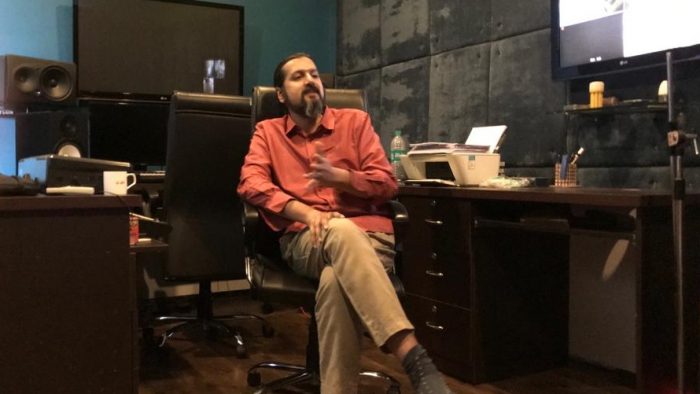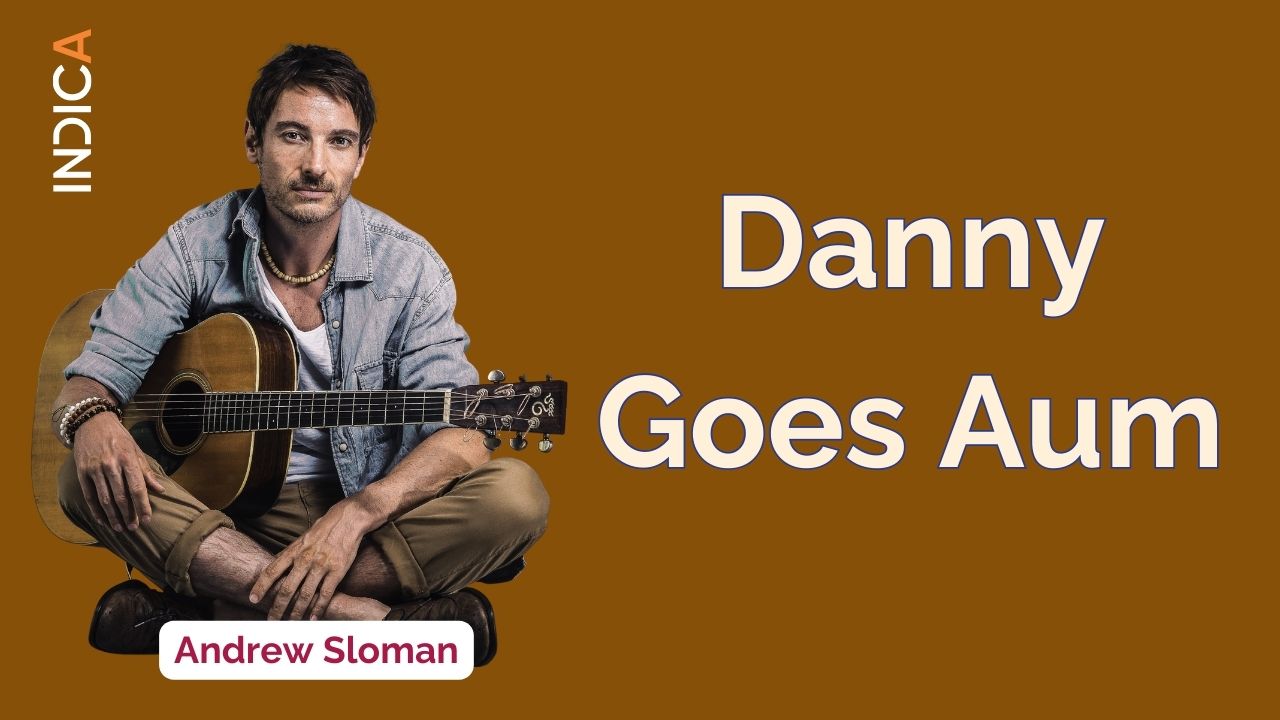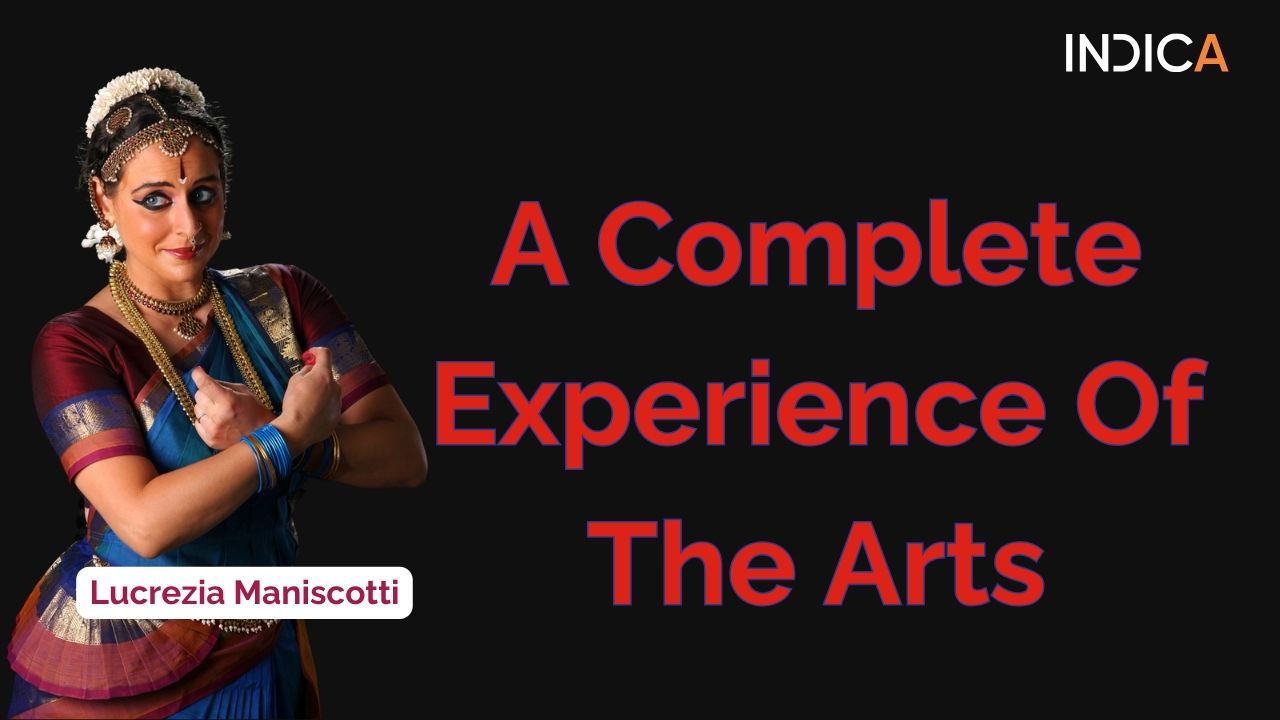By Aparna M Sridhar
Bangalore based musician and composer Ricky Kej won the Best New Age Album Grammy for Winds of Samsara. The album brings out parallels between Mahatma Gandhi and Nelson Mandela with lessons on conserving the environment. Ricky quotes Mahatma Gandhi’s translation of the Ishavasyam Idam Mantra where he says ‘there is the divine in every single atom of the universe, whether that atom goes on to building something that is living or non-living,’ which means that one has to co-exist not just with all life but with all elements of nature. To Ricky this is what needs to be brought out through Indian music. Ricky is 17 is on our list of Bangalore's Global Icons.
What kind of Indian music can win a Grammy award?
There are only four solo Indian Grammy award winners. There’s Pandit Ravishankar, he has won two Grammys and a Lifetime achievement award and his was not a collaborative effort. Second was Pandit Vishwamohan Bhatt and he was the leading artiste on that album. Third was A R Rehman, he was the only composer in Slumdog Millionaire and he won two Grammys for best song and best score. It was pop music but it was Indian with a lot of classical influence. It had the sitar and a lot of Indian vocals. My Grammy was for my album Winds of Samsara, which was with South African flautist Wouter Kellerman in the Best New Age album, but I was the lead artiste. There are others who are part of an ensemble or maybe part of 12-13 artistes on an album which is in itself a huge honour.

How did the award change the course of your life?
One has to look at the platform that the award gives you, to do bigger and greater things. My music is very cause driven, so for me the Grammy gave me a greater platform to further the cause of protecting the environment.
The awards for music are different. In India you have sevaral awards for films. Internationally too, you have the Oscars, the BAFTA, the Cannes, the Golden Globe Awards, the Screen Actors Guild Award, the Sundance Award. For music there is only one award – the Grammys.
There is no award in the world that comes close to the Grammys for music. If you look at the other awards, in Canada the biggest award is the Juno award and you have to be a Canadian to win the award. You have to be a South African to win the South African music Award. In India it’s the GIMA awards you have to be from India and the music has to be recorded in India. It is only with the Grammys, which is like the Olympics of Music, anyone from anywhere in the world can win the award.
In your Grammy acceptance speech you quoted Asatho ma sath gamaya. What inspires you about that phrase?
It’s a beautiful phrase of darkness to light. That album was about the ideals of peace and tolerance. I collaborated with a South African musician. So we brought out parallels between Mahatma Gandhi and Nelson Mandela but from an environment perspective.
How does the use of big national icons help in sending out a message through music?
The problem with big icons is that they come with the faults of being human… many many faults most of the time. The idea is to go with what people have said rather than what they have done in their lives. Right now Michael Jackson is coming under so much scrutiny because of the recent documentary. But Michael Jackson was one of the first few musician environmentalists in the world. He made the Earth Song which became so popular that it reached the masses in a way in which even a love song or pop song does not reach. People started thinking about the earth and the planet. There are things that Michael Jackson has done that are of absolute greatness. It is the same with every leader.
You use a lot of Sanskrit in your music. How do we put out correct ways of pronouncing Sanskrit words in World Music?
The only way is to put out equally amount of content ourselves. Atleast our culture is represented correctly most of the time. If you look at Zulu culture… South African and East African cultures have been bastardised, at a different level altogether, where people are doing chants of Ooha Ooha and stuff. When it comes to Greek mythology, that too has been distorted. The only way to stop it from happening to us is for us to put out our content. We need to popularise our content. That is why I use a lot of Sanskrit. The Grammy winning album had a lot of Sanskrit in it. My latest album Shanti Samsara is almost 50 per cent Sanskrit. These albums are mainly marketed abroad, they are not marketed in India. So people atleast can come to know what the authentic way of doing things are.
Can Indian music be popular among teenagers across the globe?
Ofcourse. If you go to a Vishwamohan Bhatt concert in the US, it is mainly youngsters who are in the audience. When I perform in the US, in Europe in Australia and other places, we do have a lot of English lyrics along with Sanskrit. I have seen the eyes of the audience light up, and mine is mainly a youth audience, as soon as they see a flute player or a sitar player doing an alaap or an improvisation piece. That is what captures their imagination.
How does one create music that has lasting popularity?
In India 99 per cent of all content is basically created by Bollywood. So every song that is created in India is either a love song or an item song. That comprises most of the music that comes out in India. Musicians are not making music from the heart. Musicians are not creating music based on their own personalities or their own beliefs.

In the film industry here, people are under pressure to produce upto four films a year. In the Kannada film industry people produce 12-13 films a year. Even if you are doing four to five films, it means 20-25 songs a year. This means every two weeks you have to come up with a song and you have to promote the song. Everything becomes an assembly line.
In the West too there is commercialisation but the artistes there are producing music that they are creating. Musicians abroad make an album every two years. They are not under pressure to create. So their music reflects their personality. When you listen to Adele, you know what kind of a personality she is. So is the case with Beyonce or Britney Spears.
In India you have Vishal Dadlani, a good friend of mine, a strong supporter of gender equality but his most popular song is Sheila Ki Jawani. He has even written the lyrics for that song. Basically it’s a misogynistic song, extremely violent towards women, it does not define him as a personality and I cannot imagine him sitting down and listening to it. So why is he making music which is the exact opposite of his personality? That is what the film industry does to you.
Another example is Shankar Mahadevan. I consider him one of the greatest singers in the world. His most famous song is Kajra re again a very misogynistic song. You may say that these musicians do their own independent music -- either Vishal doing rock music or Shankar doing classical stuff, but the fact is that the music you do for the film industry far outweighs what you do for yourself. So much so that your legacy is going to be your film music not your own music.
I don’t want to make music that will define me as a musician but is not from my heart. That is why I will never be a part of the film industry.
So how do we create the space where musicians can put out their own music and be successful?
If you look at the greats like Pandit Ravi Shankar, or Ustad Zakir Hussain, Anoushka Shankar, Fazal Qureshi or Ali Akhbar Khan all of them had to move abroad because they realised that their music is not getting much respect over here. It’s not that they started doing Western music. Pandit Ravishankar would be playing with the Beatles but he would still be doing classical music. He was true to himself, he was true to the kind of music he was making.
In India, music is not a monetisation medium. It is not a money making medium for film makers. It is a publicity medium to get people to buy movie tickets. The music is released a month before the film. Producers need the music to go as far as possible, so then the content creators of music don’t bother about piracy.
The music too has become very commercial where the main hook line has to come within the first 30 seconds of a song, and people don’t have the patience to let a song grow on them. Earlier there used to be pride of ownership when it came to music. People would buy CDs, LPs, cassettes. Later it moved to MP3s where music was stored on their phone and now it’s come to a point where people only want to stream music. Everything is volatile. So the shelf life of a song is less than thirty days to three months.
We need to get royalty and residuals for music. We have to create a system where money comes every time a film is screened like it happens in the US and elsewhere. The producer needs to feel that ‘I can create a few things which will be enough to secure my living’. The pressure has to come from musicians to stop piracy and ensure standards.
If I am an independent music maker, how am I going to sell any music because so much free content is thrown everybody’s way? Gone are the days in India where in the 1980s, 1990s and 2000s where people would actually look outside and try to discover new music. Now it is a period where people are being bombarded with music and so they take in whatever comes their way. I believe that change can happen in India only when more and more musicians start making music independently. In the West the big names are not composing music keeping popular trends in mind, they are just creating music and that music happens to be successful. It touches people because anywhere in the world people can make out whether that music is honest or not.
Music and Conservation
How did your passion for conservation begin?
I am not sure whether my love for nature led to my music or my music led to my passion for the environment. For me it has been one and the same. As a child when my parents and friends would run away from seemingly dangerous animals like snakes, mice, I was always drawn toward them. I would look into the eyes of the animals and see the personality in every single animal. For me it has never been their world and our world. It has always been our world. I have always had pets, cats and dogs, birds and lizards. They have always been a part of my world. An animal has always been an individual for me.
How does one bring in Indian values in promoting the environmental conservation through music?
India has been very reverent to forest and wildlife for the longest period of time. If you look at European countries or America, all the mammals have gone completely. We have huge problems when it comes to human and animal conflict simply because we still have forests and animals. For us everything has always been about co-existence where you look at Vasudhaiva kutambakam.
Today people see it as only as co-existence between the entire human race. But in the Vedas, it is coexistence not just between all life but co-existence between all entities living or non-living. Mahatma Gandhi had translated the Ishavasyam idam Mantra and in his translation he says there is the divine in every single atom of the universe, whether that atom goes on to building something that is living or non-living. Which means that we have to co-exist not just with all life but with all elements of nature. And this is what needs to be brought out through Indian music.





